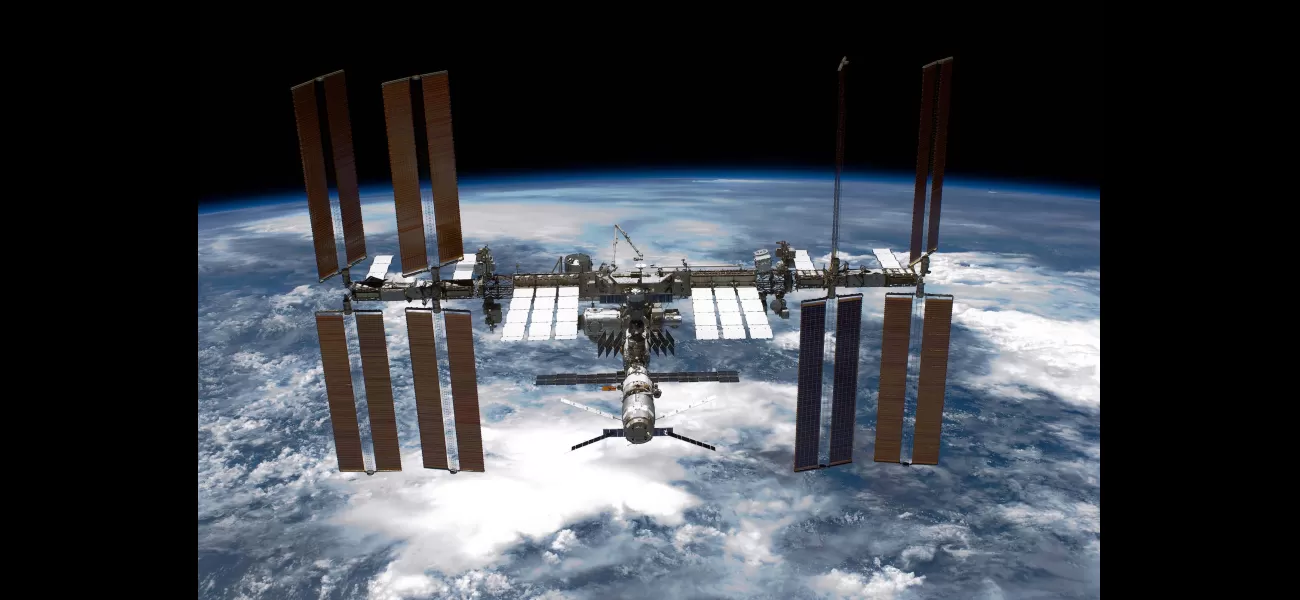SpaceX awarded $1.2 billion to decommission International Space Station.
Space station to re-enter atmosphere at 27,359 km/h.
July 1st 2024.

NASA has announced that it will be partnering with SpaceX to develop a new vehicle that can safely steer the International Space Station out of orbit when it is ultimately retired by the federal agency and its partners in the coming years. This is a crucial step in the process of transitioning the ISS to its final resting place and ensuring a responsible end to its operations.
The vehicle, which will be designed and built by SpaceX, is expected to launch sometime in the next decade. Once in orbit, it will attach to the massive structure of the International Space Station, which weighs nearly one million pounds and spans the length of a football field. Using advanced technology, the vehicle will guide the space station as it hurtles out of Earth's orbit and back into the planet's atmosphere at speeds of over 27,000 kilometers per hour.
NASA has allocated up to US$843 million for this project, but has not disclosed how many other companies submitted proposals for the contract. The agency operates the ISS in partnership with Roscosmos, the Russian space agency, as well as other international agencies such as JAXA, the European Space Agency, and the Canadian Space Agency.
It is the responsibility of all five space agencies to ensure the safe deorbit of the International Space Station. While NASA has not stated whether its international partners will contribute to the cost of the SpaceX contract, it is clear that all parties are committed to a smooth and responsible transition.
The exact timeline for the ISS's retirement is still uncertain. NASA has stated that it plans to continue operations through 2030, but Roscosmos has only guaranteed its participation through 2028. The space station, which has been continuously occupied since 2000, is showing signs of aging and will eventually need to be decommissioned.
In a statement, Ken Bowersox, associate administrator for NASA's Space Operations Mission Directorate, emphasized the importance of selecting a US Deorbit Vehicle for the ISS. He noted that the laboratory will remain a crucial platform for scientific research and collaboration, and that the transition to a privately-operated low-Earth orbit will pave the way for NASA's future missions to explore deeper into the solar system.
The agency's Artemis program, which aims to send astronauts back to the moon and establish a permanent lunar outpost, is just one example of these ambitious plans. As NASA looks to the future, it is also important to recognize the achievements and partnerships that have made the International Space Station a cornerstone of space exploration.
The vehicle, which will be designed and built by SpaceX, is expected to launch sometime in the next decade. Once in orbit, it will attach to the massive structure of the International Space Station, which weighs nearly one million pounds and spans the length of a football field. Using advanced technology, the vehicle will guide the space station as it hurtles out of Earth's orbit and back into the planet's atmosphere at speeds of over 27,000 kilometers per hour.
NASA has allocated up to US$843 million for this project, but has not disclosed how many other companies submitted proposals for the contract. The agency operates the ISS in partnership with Roscosmos, the Russian space agency, as well as other international agencies such as JAXA, the European Space Agency, and the Canadian Space Agency.
It is the responsibility of all five space agencies to ensure the safe deorbit of the International Space Station. While NASA has not stated whether its international partners will contribute to the cost of the SpaceX contract, it is clear that all parties are committed to a smooth and responsible transition.
The exact timeline for the ISS's retirement is still uncertain. NASA has stated that it plans to continue operations through 2030, but Roscosmos has only guaranteed its participation through 2028. The space station, which has been continuously occupied since 2000, is showing signs of aging and will eventually need to be decommissioned.
In a statement, Ken Bowersox, associate administrator for NASA's Space Operations Mission Directorate, emphasized the importance of selecting a US Deorbit Vehicle for the ISS. He noted that the laboratory will remain a crucial platform for scientific research and collaboration, and that the transition to a privately-operated low-Earth orbit will pave the way for NASA's future missions to explore deeper into the solar system.
The agency's Artemis program, which aims to send astronauts back to the moon and establish a permanent lunar outpost, is just one example of these ambitious plans. As NASA looks to the future, it is also important to recognize the achievements and partnerships that have made the International Space Station a cornerstone of space exploration.
[This article has been trending online recently and has been generated with AI. Your feed is customized.]
[Generative AI is experimental.]
0
0
Submit Comment





